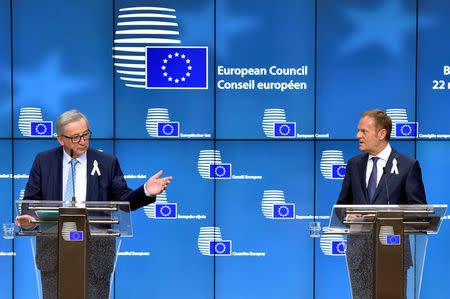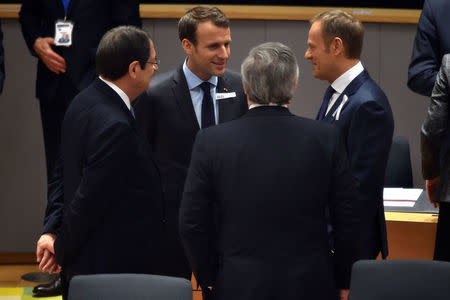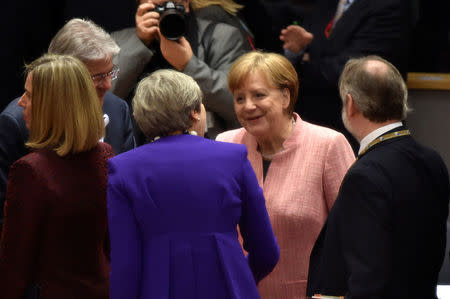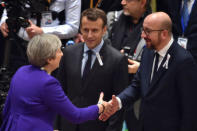Euro leaders to renew reform pledges at 'pit stop' summit
By Jan Strupczewski
BRUSSELS (Reuters) - Euro zone leaders will on Friday give fresh impetus to reforms aimed at making the bloc more resilient to crises, with plans having stalled over the last three months in the absence of a permanent government in Germany.
Leaders of the 19 countries sharing the single currency are not likely to take key decisions at what the chairman of their finance ministers, Mario Centeno, called a "pit stop" summit.
But they will discuss progress the finance ministers have made towards banking union and increasing the scope of the bloc's ESM bailout fund. They are likely to ask the ministers to work out the scale and timeline for key reforms by June.
"Many of the themes for discussion in March have been considered by ministers on several occasions, gathering a limited degree of consensus...," an agenda note for the meeting said. "Further developing the agenda requires the direct involvement of, and guidance by, the leaders."
Governments remain divided over how and when to introduce the last element of the banking union project -- a pan-euro zone deposit guarantee scheme to prevent future bank runs.
To launch the scheme, many euro zone countries insist that banks first have to reduce the risks they take in lending to private and government borrowers. But there is no agreement yet on how to measure if risks have sufficiently fallen.
The other priority is the transformation of the ESM bailout fund into a European Monetary Fund and its role in sovereign debt restructuring if a government is forced to ask for help.
Some countries, including Germany, insist restructuring should be automatic on asking for a bailout, while others favour more discretion.
The leaders will also be asked to say what they think about a euro zone fiscal capacity -- a pool of money just for the euro area -- an idea that French President Emmanuel Macron supports but German Chancellor Angela Merkel is cool to.
"What would be its main purposes (e.g. macroeconomic stabilisation, support to investment and employment, promotion of structural reforms)? Should it be part ...of the EU budget or an instrument outside the EU budget?" the agenda note said.
(Reporting By Jan Strupczewski; editing by John Stonestreet)

 Yahoo News
Yahoo News 








